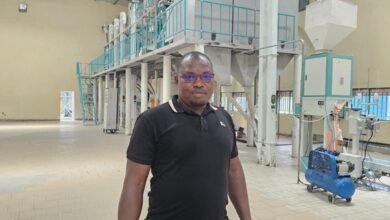Côte d’Ivoire : Diaspora expected to participate in development process
The Ivorian diaspora is now expected to participate in Côte d’Ivoire’s development process, which is now in building process. The state and the private sector are looking to them to take their rightful place in the building of their country.
By Issiaka N’Guessan, in Abidjan
Read more : Côte d’Ivoire : Diaspora expected to participate in development processThere are 1,240,000 Ivorians who make up the diaspora, according to the estimates of the Valyans research project commissioned by the Prime Minister’s Office. This Ivorian diaspora, which is not very present in the national economy, is a strength that the government intends to build on. For the time being, however, these Ivorians outside the country are reluctant to participate in the Ivorian economy.
In sub-Saharan Africa, the economies and budgets of some countries, such as Mali, Burkina Faso and Niger, and even Nigeria, take into account the contribution of their diasporas. Côte d’Ivoire wants to follow this trend and involve its diaspora in its ongoing development process.
Côte d’Ivoire would like to be able to count on its endogenous and exogenous human resources for its future, in several strategic sectors in which several of its citizens have been trained abroad and have acquired various experiences. In a context in which the government of Alassane Ouattara has proclaimed « 2023, the year of the Ivorian youth », it goes without saying that it will take more than a slogan to capture the young graduates leaving universities and colleges. Not to mention those who drop out of secondary school. It is a challenge that the Ivorian government hopes to meet by creating jobs.
« The participation of diasporas in the development of their region of origin remains a real national and international policy issue”
According to the CEO of 2ABCOM, Lassina Bamba, an Ivorian living in France, « the participation of the diaspora in the development of their region of origin remains a real national and international policy issue. Like other countries, including Mali, Israel, Algeria and Tunisia, Côte d’Ivoire, the economic lung of the West African sub-region, is not immune to this reality of the participation of diaspora communities in its development.
Lassina Bamba, chief organizer of the International Days of African Women Entrepreneurship (JIEFA), which will be held in Bouaké in 2023 says « the Ivorian government has for years been encouraging the diaspora to return to and/or invest in the country, through a series of programs and projects, in order to contribute to the creation, production and enhancement of wealth and to local development. In this context, a Diaspora Forum has been held for several years, the first edition of which took place in Abidjan on March 7 and 8, 2015 in the presence of the President of the Republic. On the occasion and in order to demonstrate the importance of the participation and contribution of the Ivorian diaspora to national and local development, the President stated in his speech: « You, Ivorians abroad, are a force and a strength or Côte d’Ivoire. Your dynamism, your talents and your courage are assets for the Ivorian nation, of which you are worthy ambassadors. As such, you must contribute to the country’s influence so that it can take its place in the concert of nations.”
However, he further says, « the approach aimed at associating the diaspora with the development process and socio-economic recovery at the regional level requires careful analysis and developing a global, national, regional and local strategy that could promote their commitment and their effective and efficient involvement. »
In this regard, the process of diaspora engagement should « allow for defining objectives, implementing a policy to identify the diaspora and establishing relations of trust between the diaspora and national stakeholders.
« Côte d’Ivoire is the country where the weight of remittances in the economy is the lowest, at less than 1% »
Banker and economist Guillaume Liby of William Khamey Advisors, a firm specializing in macroeconomic and financial analysis, says that according to OECD data, « remittances sent by Ivorian emigrants to their country of origin in 2019 amounted to around USD 330 million (around CFAF 200 billion), according to International Monetary Fund (IMF) estimates. Remittances increased by 17% between 2005 and 2019. The ratio of remittances to GDP fell from almost 1% to 0.5% between 2005 and 2019/20, after rising at the end of the 2000s until 2011, when it reached 1.6%.” However, it should be noted that « compared to other WAEMU countries, Côte d’Ivoire is the country where the weight of remittances in the economy is the lowest, at less than 1% ».
In order for this diaspora to participate effectively in Côte d’Ivoire’s development, he recommended that « mechanisms be found to integrate its migrants into the country’s economic and political life. » At the economic level, missions to promote investment in the country should be multiplied. Sectors such as real estate or public debt could find Ivorian investors in the diaspora. This also includes « the integration of this diaspora into national politics through representation in the Ivorian parliament ».
« Dedicated support and facilitation services for diaspora projects »
According to the Directorate General of Ivorians Abroad, in order to involve these Ivorians in the process of economic development, the State has set up « a tool to valorize the skills of the diaspora, programs to facilitate the financing of socio-economic projects of the diaspora and its participation in the national economy and created and established the Côte d’Ivoire SME and the Guarantee and Credit Company for Ivorian SMEs ». This is besides the « Expertise France » program, which has allocated funds to entrepreneurs in the diaspora.”
During the last edition of the Ivorian Diaspora Forum held on May 22 and 23, 2017 in Abidjan, it was decided to create dedicated support and facilitation services for diaspora projects; optimize fund transfers by setting up new financial products; facilitate the diaspora’s access to innovative financial mechanisms (private equity, sovereign wealth funds, financing of youth projects and SMEs, etc. ), develop a compendium of skilled workers and needs in line with national priorities; raise awareness and better disseminate information to the diaspora on the conditions for creating businesses and encourage bilateral and multilateral partners to support projects and programs promoting the reintegration and employment of young people.
When asked, Ivorians in the diaspora said they were monitoring the effective implementation of these resolutions.






